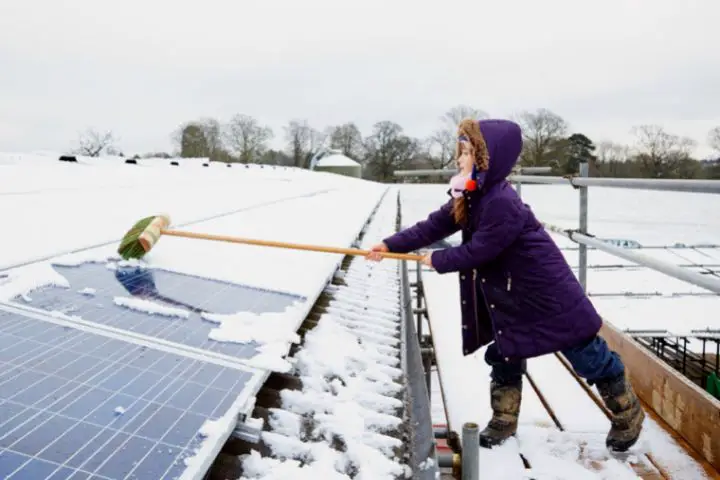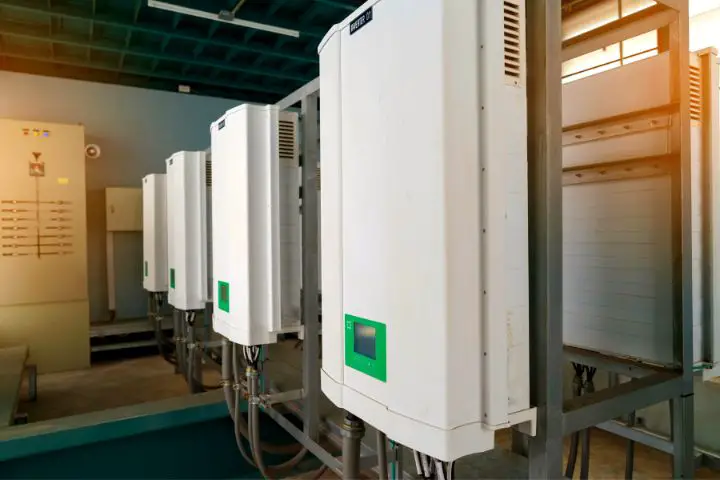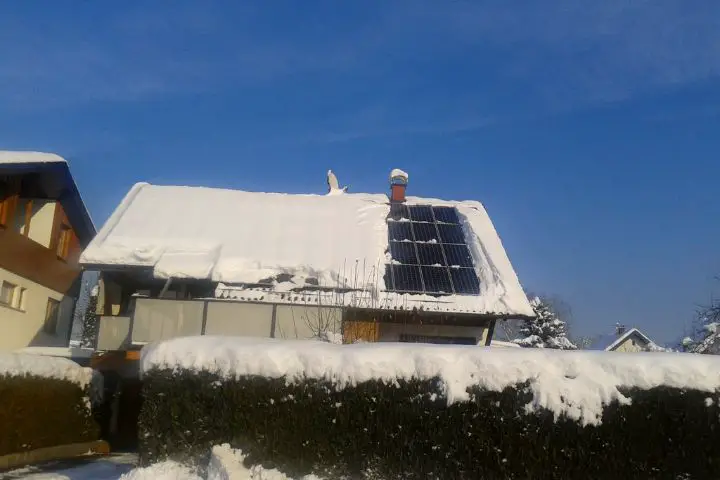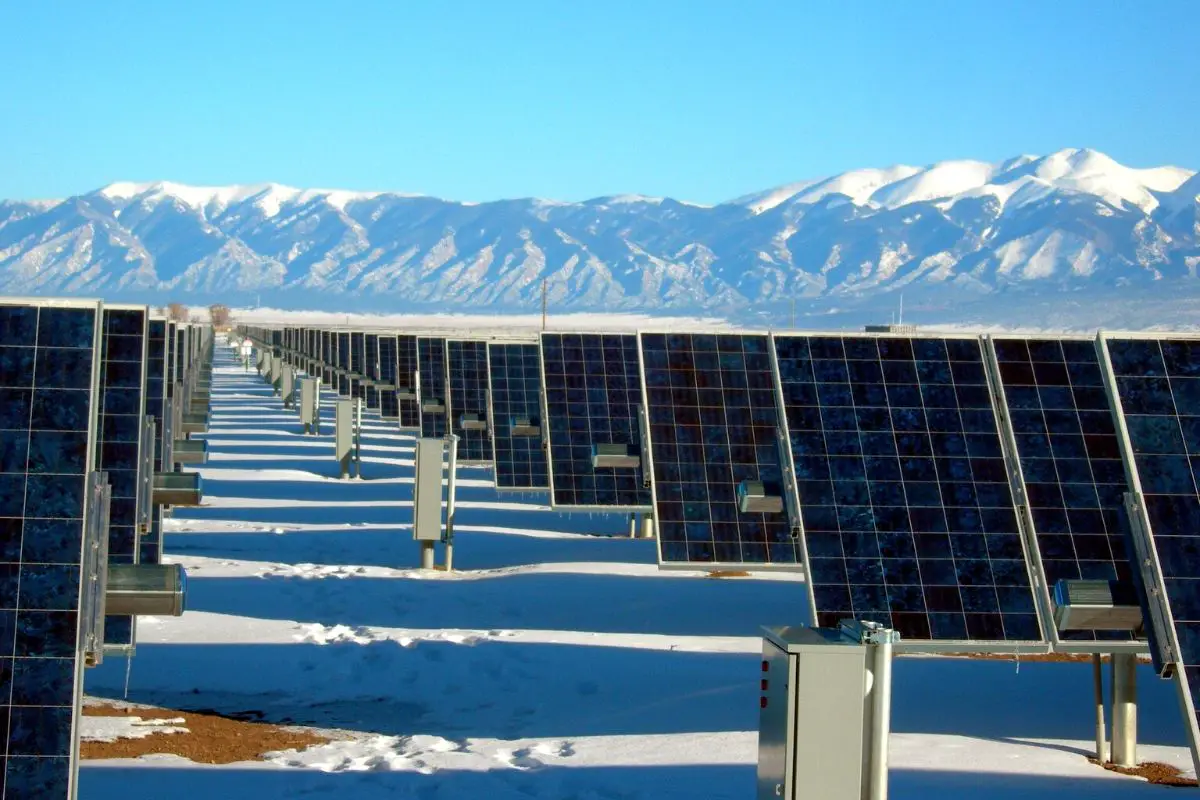Do Solar Panels Work in the Winter | Direct vs Indirect sunlight
Solar panels are a clever innovation that uses the energy from the sun and converts it into usable energy to power our homes. It’s a natural, eco-friendly option that helps to reduce the costs of your household energy bills.
Sounds great, but many people (myself included) wonder how useful they are when they are not exposed to direct sunlight — on which I wrote a separate article. And also, depending on where you live, what happens during the cold, harsh, dark winter months? Are these solar panels really a sustainable option, or are they just another fad?
Related Article: Solar Panels vs Wind Turbine for Homes
Will My Solar Panel Work in the Winter?
The short answer is yes, but…
Low temperature itself is not a problem, but the lack of sunlight can potentially be!
Due to the lack of sunlight most countries get during winter, a very common line of thinking is your solar panel won’t be very effective during the winter, especially as more energy will be used compared to the summer. After all, most homes will use their central heating systems to stay warm.
Yes, solar panels need sunlight to work and direct sunlight is the best. However, they can also be powered by indirect sunlight, though it’s not as effective. With good insulation and some sunlight, solar panels are definitely fine in winter!
Does the Cold Weather Affect Solar Panels?

You would expect summertime to be the best for solar panels. But surprisingly, it’s the colder weather that can be more beneficial for solar panels. Let me explain.
Solar panels can be used to power electrical appliances like your phone, laptop, dishwasher, washing machine etc. Heat exposure is detrimental to the battery life and performance of these devices and it is no different for solar panels — if yours have battery storage, that is. Cold weather conditions produce better results as the possibility of overheating is canceled out by the climate.
So, low temperatures can actually be beneficial! It’s the potential lack of sunlight that can cause supply problems.
Another added benefit of the winter is that it can be the ideal time to install solar panels. Due to their inherent connection with sunlight, people often think of purchasing them during the summer, resulting in higher demand and higher prices.
Wintertime, on the other hand, sees the demand drop off, partly due to the misconception that they are only really effective during the summer. So deciding to install solar panels, which are already helping you save money, during the winter months can help you get an even better deal.
So the winter is actually pretty good for your solar panels. However, it is important to keep in mind one thing. If they are ground mounted, the base of your panels will be placed into the ground outside of the home or building you’ve installed them in. They go into either soil or concrete, so it’s important to read up on the impact cold weather can have on these foundations. Always remember to ask the experts installing the panels what impact this could have on your solar panels and output.
How Can I Maintain My Solar Panels During the Winter?
There are several ways to make sure that in spite of the growing cold, extensive snowfall reports and increasingly cloudy days that you get the most out of your solar energy system during the wintertime:
Managing Your Solar Inverters and Charge Controllers

The way solar power energy systems work is that solar panels absorb sunlight and convert it into direct current energy (DC). An inverter installed into the panel then turns this DC energy into alternating current energy (AC). AC energy is the form of energy which we use to power our homes, electrical devices, appliances etc. Charge controllers limit the amount to which electricity is stored in batteries from a solar unit.
While both components are durable, what is particularly key to be mindful of during winter months (and any other time with extreme temperatures) is that they need to be safely stored away in temperatures a minimum of -31 degrees Fahrenheit to 175 degrees Fahrenheit.
Keeping a Check on Your Solar Batteries
The performance of batteries in a solar panel system can be affected at different temperatures, like lithium-ion, lead acid, nickel cadmium and flow (water-based electrolyte liquid) batteries all have varied levels of temperature tolerability.
It’s best to invest in a BMS – battery management system – to best assess the range in temperature and performance of your battery during extremely cold conditions. Thermometers can also be attached to know when to insulate batteries. It is preferred to store batteries in a dry space and to charge them through a trickle charger to avoid depleting them fully.
The volts in winter seasons throughout should ideally be maintained at 12 Volts DC, and recharged if they fall during this time.
Reducing Usage of Energy in Your Home
While solar panels do work to harness power through cloudy, snowy and shorter, less sunny days, they aren’t able to produce as much energy as required to work overtime in heating your home or lighting up your rooms.

What works best during the winter months – and overcast days – is to manage the usage or consumption of energy within your home, stabilizing it through more extreme weather conditions of the year.
How can one save on energy during this time? Tackling insulation in the home is one of the most important things to do to avoid overusing heating systems and putting strain on the power converter in your home.
Things like thermal curtains or blackout curtains can be quite helpful too.
Keeping Your Solar Panels Clean During Winter
The first thing to keep on hand for snow days is a soft brush. You can easily sweep the snow off the panels if it gets on them in spite of the angle – if the solar panel array is ground mounted, that is.
Keep wiry brushes, brooms, sticks or thick wipers away from the solar panels, as they can scratch the tempered glass.
And once you start feeling the gentle breezes of spring, be sure to check out my guide to solar panels cleaning in general!
FAQs
Can Snow Damage My Solar Panels?
Solar panels were made to withstand a much more severe beating than snow. Even hail won’t damage them in most cases – which, of course, doesn’t mean it can’t cause micro cracks that will lower their durability.
In other words, you don’t have to install a mesh or any other protection tool purely because of snow. But if you do decide you need it because of hail and thunderstorms, it will bring you a peace of mind during snow blizzards too.
Bottom Line
Environmentally beneficial, light on the pocket, great for health and durable during most extreme weather conditions, solar panel systems are worth the investment! Even when covered with snow, solar panels can generate electricity.
This isn’t to say leaving a thick sheet of snow on your panels is desirable. Anything covering your panels will lead to diminished power produced. But as sunlight can still penetrate panels through snow, the cells can still produce electricity.
Additionally, the dark reflective glass speeds up the snow melting process, and at the angle, they are installed, snow doesn’t necessarily accumulate easily on the panels.
Solar panels also rarely reach their peak temperature point or peak performance during winter months – they begin to lose most of their efficiency around 77 degrees Fahrenheit.





